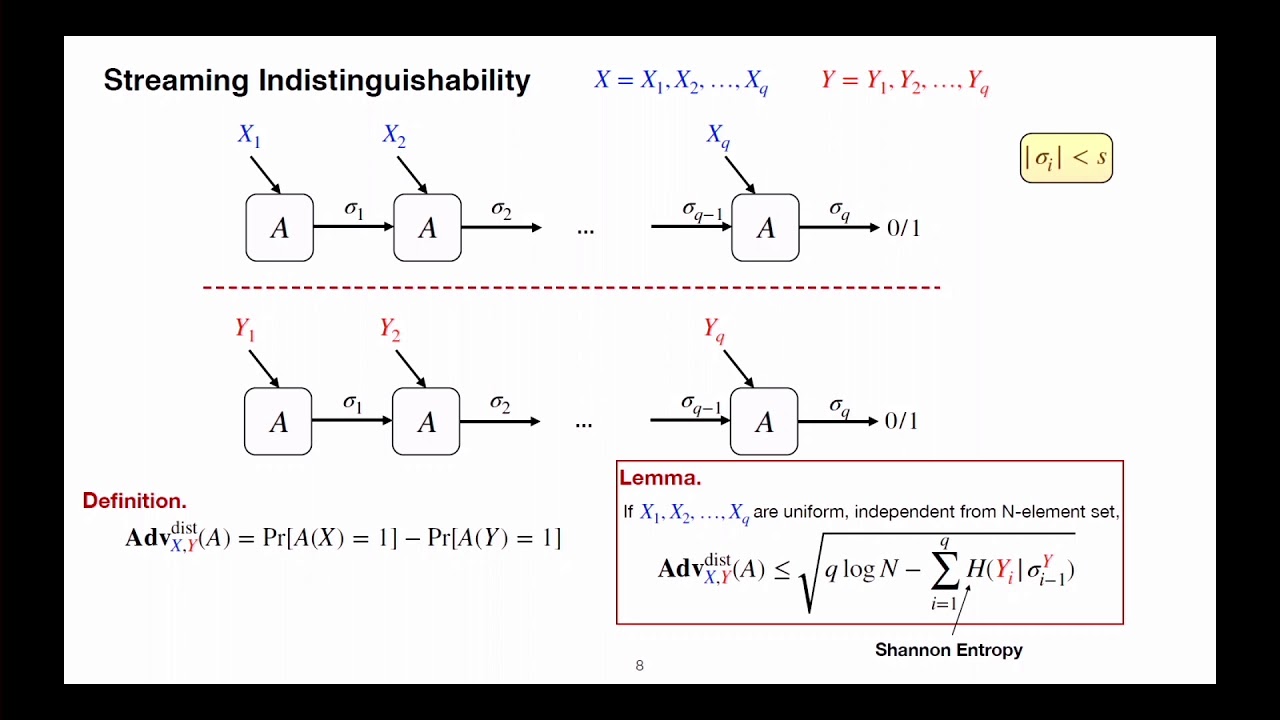Welcome to the resource topic for 2019/258
Title:
Tight Time-Memory Trade-offs for Symmetric Encryption
Authors: Joseph Jaeger, Stefano Tessaro
Abstract:Concrete security proofs give upper bounds on the attacker’s advantage as a function of its time/query complexity. Cryptanalysis suggests however that other resource limitations - most notably, the attacker’s memory - could make the achievable advantage smaller, and thus these proven bounds too pessimistic. Yet, handling memory limitations has eluded existing security proofs. This paper initiates the study of time-memory trade-offs for basic symmetric cryptography. We show that schemes like counter-mode encryption, which are affected by the Birthday Bound, become more secure (in terms of time complexity) as the attacker’s memory is reduced. One key step of this work is a generalization of the Switching Lemma: For adversaries with S bits of memory issuing q distinct queries, we prove an n-to-n bit random function indistinguishable from a permutation as long as S \times q \ll 2^n. This result assumes a combinatorial conjecture, which we discuss, and implies right away trade-offs for deterministic, stateful versions of CTR and OFB encryption. We also show an unconditional time-memory trade-off for the security of randomized CTR based on a secure PRF. Via the aforementioned conjecture, we extend the result to assuming a PRP instead, assuming only one-block messages are encrypted. Our results solely rely on standard PRF/PRP security of an underlying block cipher. We frame the core of our proofs within a general framework of indistinguishability for streaming algorithms which may be of independent interest.
ePrint: https://eprint.iacr.org/2019/258
Talk: https://www.youtube.com/watch?v=760TuMvM75E
See all topics related to this paper.
Feel free to post resources that are related to this paper below.
Example resources include: implementations, explanation materials, talks, slides, links to previous discussions on other websites.
For more information, see the rules for Resource Topics .
